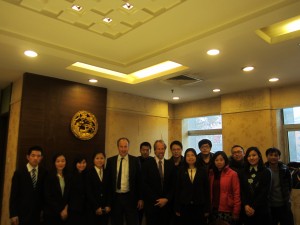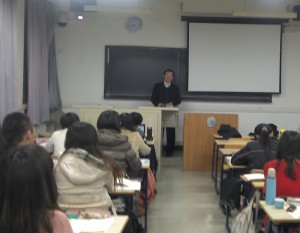 ICANN completed its 43rd meeting in Toronto. The new CEO took office and a couple high-level officers appointed. Over the busy week, I drafted a few policy documents that have been adopted by the pertinent constituencies.
ICANN completed its 43rd meeting in Toronto. The new CEO took office and a couple high-level officers appointed. Over the busy week, I drafted a few policy documents that have been adopted by the pertinent constituencies.
I drafted the “ALAC Statement on Trademark Clearinghouse Document”.
In August 2012 the Registry Stakeholder Group filed a DIDP requesting all documents relating to
• Any claims alleging ownership of intellectual property rights made by any bidder or bidders [for Trademark Clearinghouse (TMCH)] responding to the RFI, including but not limited to claims of copyright in data or compilations of data, patents, trademarks or trade secrets; and
• Any analysis regarding validity of these claims.
In September 2012 ICANN responded that: Regarding this item, to the extent that bidders made claims of ownership of intellectual property rights associated with the proposed operation of the Trademark Clearinghouse, those materials are subject to the same conditions of non–disclosure identified in conjunction with Documents on cost and financial models regarding the operation of TMCH. Regarding claims of ownership of intellectual property rights arising out of the operation of TMCH are being negotiated and will be published in the finalized agreement later.
The ALAC wishes to request further information on the following:
• Intellectual property rights affect or impact ICANN’s decision and selection of TMCH providers. Legally, except trade secrets, intellectual property rights, including Patents, Copyright, Trademarks, should be publicly disclosed in due course either for subsistence or exercise. Will intellectual property rights that affect or impact ICANN’s decision or selection, be disclosed to the community in due course, or will they be allowed to remain secret?
• Will ICANN (and its community) be appropriately licensed on royalty-free or RAND (reasonableand-non-discriminatory) basis by the relevant intellectual property owners?
• Is ICANN developing necessary intellectual property policy for decision-making or contract negotiation?
The ALAC further advises that ICANN needs to implement a thoughtful and comprehensive intellectual property policy in which the global public interest is properly secured. In this regard, the Internet Engineering Task Force (IETF) intellectual property policy sets a good example.
____________________________________________
I draft ALAC Comments on IDN ccTLDs PDP.
We note with concern that the draft recommendations consider selected IDN ccTLD strings to be confusingly similar based on their appearance to “a reasonable Internet user who is unfamiliar with the script” although “linguistic, technical, and visual perception factors” will be taken into consideration. Notwithstanding the merit and rationale for this assessment criterion, an assessment on confusing similarity based primarily on the appearance of selected strings to users unfamiliar with the script may not be consistent with the nature and purpose of IDN ccTLDs, which are fundamentally introduced for the use and benefit of local IDN users in pertinentccTLD territories. Without taking into account sufficient linguistic factors, problematic results may occur. For example, an IDNccTLD that is assessed as not confusingly similar by a user “who is unfamiliar with the script” may well be deemed confusingly similar by the local IDN user and vice versa. We believe that this particular issue can be addressed in the policy making processthrough more consultations with the IDN communities in implicated ccTLD territories.




